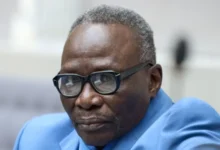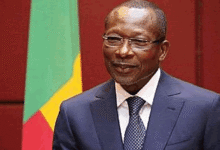’What we’ve learnt about Africa; freedom, security’

Africans are willing to give up their freedom to move around where they like and say what they think, and are willing to be watched if it means they get more security, according to a survey by research group Afrobarometer. Here are some of the key findings:
Afrobarometer suggests that giving an option of either freedom or security, is a strategy used by governments to persuade people to accept restrictions on freedom.
And, the survey suggests, it has proven a powerful argument – as more and more people are prepared to trade freedom to move where they like for a safer country.
The majority of those surveyed – 62 per cent – are willing to accept curfews and roadblocks in the interests of greater security.
This is illustrated most starkly in Madagascar. Some 83 per cent of those surveyed agreed with the statement “When faced with threats to public security, the government should be able to impose curfews and set up special roadblocks to prevent people from moving around”.
The motivation for answering this way, the research argues, may be because the country is “still trying to emerge from years of political turmoil and instability”.
In nearly all the countries surveyed, there has been a decline in the number of people who feel they can say what they think.
Roughly two-thirds (68 per cent) of those surveyed said that people must “often” or “always” be careful of what they say about politics.
The country where there has been the biggest rise in cautiousness is Mali, which the research explains, has been in political crisis since a 2012 coup and an Islamist takeover of the north.
The research also picks out Zambia and Tanzania as two countries where there has been a significant decline in the number of people who say they are free to say what they think. These two countries, the research explains, are “watched due to increasingly authoritarian behaviour by their current governments”.
Some 43 per cent of those surveyed are willing to accept government monitoring in the interests of security.
Mali stood out.
Some 75 per cent of those surveyed in Mali agreed with the statement that the government should be able to monitor private communications, for example on mobile phones, to make sure that people are not plotting violence. -BBC






